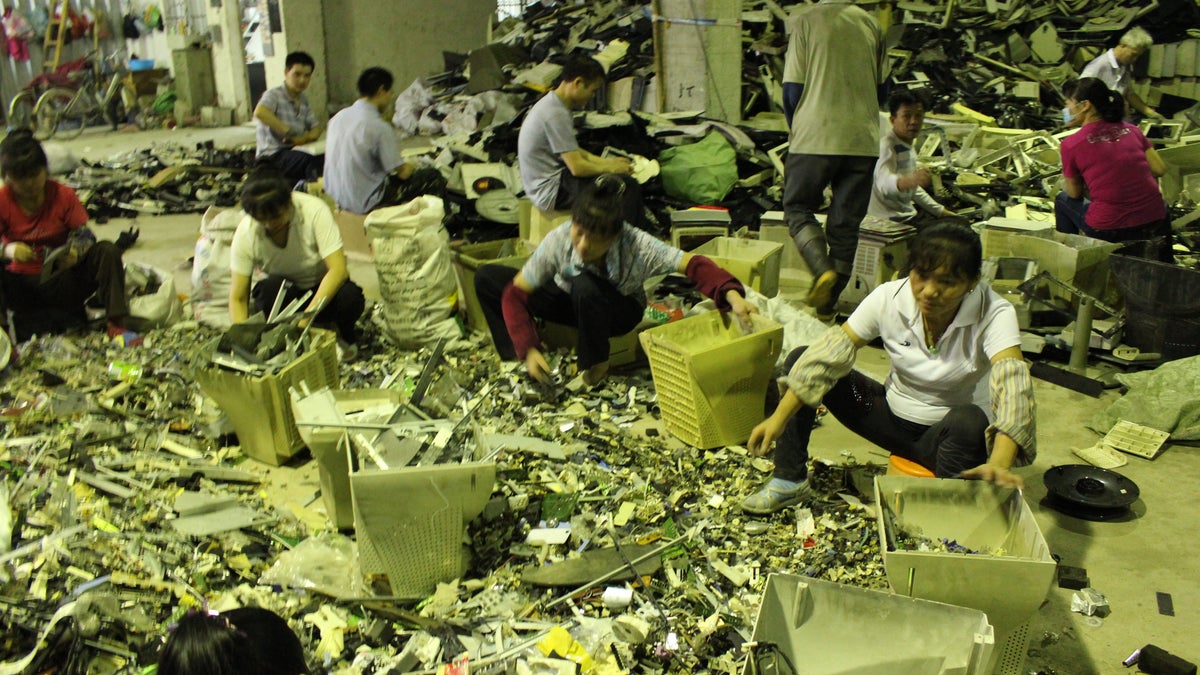Staples agrees to progressive e-waste standards
The retail giant inks a deal with e-Stewards, an environment initiative that, among other things, prohibits the export of electronic waste to developing countries.

Staples has agreed to work with one of the most environmentally progressive electronic-waste recycling groups to handle gadgets from both the company and consumers when those devices die.
The retail giant announced a deal Monday, Earth Day, to use recyclers certified by e-Stewards, a program set up by the Seattle-based environmental group, the Basel Action Network, to handle materials collected from its free technology recycling program at more than 1,500 stores nationally. The company will also use e-Stewards-certified recyclers to handle electronic waste from its own internal operations.
One of the big problems with electronics disposal is that recycling old mobile phones, laptops, and other gadgets may not actually be the most environmentally sound practice. That might seem counter intuitive. After all, in the hierarchy of green living, reuse is preferable to recycling because it extends a product's life.
But when it comes to electronics, reuse often means refurbishing and shipping goods to countries that don't have the infrastructure to handle disposing of electronics when they do ultimately reach the end of their lives. Rather than using modern methods for recycling the glass, chips, wires, and plastics in those devices, gadgets in the developing world instead move through an informal recycling chain that often winds up doing more environmental damage than good.
Last year, CNET traveled to China to trace where countless iPhones and other devices wind up when their useful life ends. There, they often go to largely unregulated recycling sites where their dismantling creates hazards that pose risks to laborers who work there and locals who are exposed to the toxic waste.
The e-Stewards program, run by the Basel Action Network, certifies recyclers that handle electronics disposal properly. To receive e-Stewards certification, recyclers need to agree to remove private data, and assure that hazardous e-waste will not be exported to developing countries, deposited in landfills or incinerators, or sent to prison labor operations.

